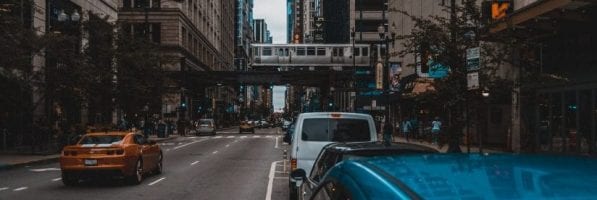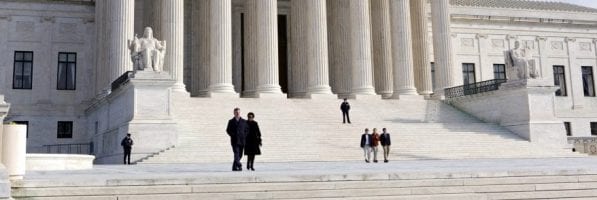Working From Home, Maximizing Profits, and More – Chicago News

Let’s explore some of the most interesting stories that have emerged from Chicago business schools this week.
Are You a Different Person at Work Than at Home? Compartmentalizing Like This Can Lead to Unethical Decisions – Kellogg Insights
Northwestern Kellogg Assistant Professor of Marketing Maferima Touré-Tillery and the University of the Sciences’ Alysson Light coauthored new research, which finds that “people who perceive their personalities as constant across their roles are more likely to behave ethically than those who think of themselves differently in each role.”
Touré-Tillery explains, “If I tend to think about myself the same way from one identity to the next, then if I do something that’s going to make me feel bad about myself, it’s likely that I’ll feel bad about myself across all of my identities.”
She adds, “Every unethical thing amplifies that sense of being a bad person. By having them merge their work and personal lives, you are helping them merge their identities as parent and worker—so they might behave more morally across the board.”
You can read the full Kellogg Insights article here.
Should Public Companies Do More Than Maximize Profits? – Chicago Booth
At a recent panel discussion hosted by Chicago Booth’s Rustandy and Stigler Centers, BlackRock Co-founder Sue Wagner and Booth’s Luigi Zingales and Marianne Bertrand dissected BlackRock CEO Larry Fink’s letter to his fellow CEOs, imploring them to engage more deeply with social issues as part of their long-term strategies.
Moderator Robert H. Gertner explains, “We have seen greater discussion, both within and outside of academia, about the role of corporations. It has come from consumers, from employees, from the government, from academics, and from investors. Perhaps this letter from Larry Fink may go down as a sort of cornerstone of this discussion.”
You can read the full exchange between all the panelists here.
Tech Leader Shares His Views On Innovation, Autonomous Vehicles, and Purpose – Gies School of Business News
The University of Illinois Gies College of Business recently hosted Mobileye ASIC Department Project Manager and Founding Engineer Mois Navon, who discussed how his company’s purpose has driven their success.
The Israeli-based Mobileye is “one of the leaders in driver assistance technology and autonomous vehicle research.” According to the article, “the demonstrated ability of [Mobileye’s] products to help prevent accidents led insurance companies to give discounts to people who used them. People were getting into fewer accidents, and the accidents they did get into were less severe.”

Navon explains Mobileye’s purpose within the Jewish concept of tikkun olam, which means “fixing the world.”
“I think that technology is that driving force for fixing the world—even though new technologies can engender difficult transitions. I think humanity is ultimately driven by purpose. We’re here to fix ourselves. We’re here to fix the world. And I hope you’ll join me.”
You can read more about the company and Navon’s speech at Gies here.
Business School Experts on the Glass Ceiling, and More – Chicago News

Let’s explore some of the most interesting stories that have emerged from Chicago business schools this week.
Here’s a Better Way to Schedule Surgeries – Kellogg Insight
Northwestern Kellogg Associate Professor of Operations Chaithanya Bandi and McCombs’ Diwakar Gupta recently published new research that focuses on how hospital administrators can optimize operating room schedules “while still satisfying surgeon needs.”
According to the article, “the researchers developed an innovative algorithm to improve OR operations, minimizing the number of ORs hospitals had to keep open, while still honoring surgeon requests,” which can drive savings of anywhere from 10-25 percent in OR costs and “lead to lower healthcare costs and thus lower insurance premiums.”
Bandi explains, “In healthcare settings, these kinds of savings don’t translate immediately to consumers. But better utilization of OR capacity helps the hospital see more patients in a shorter period of time, with lower rejections or delays for surgery requests.”
Bandi hopes to apply an “algorithm similar to the OR-optimization model to help data centers improve project efficiency. “Projects like these can take hours to run and incur very large energy costs. By some estimates, as much as 12% of the world’s total energy goes toward these projects.”
You can read more from Kellogg Insight here.
The Glass Ceiling: Three Reasons Why it Still Exists and is Hurting the Economy – Chicago Booth News
In a new working paper entitled “The Glass Ceiling,” Chicago Booth Professor Marianne Bertrand outlines three factors “why the glass ceiling persists in excluding women from top-paying jobs.”
- Women with college degrees often choose to work in fields that offer lower incomes.
- Psychological differences between men and women could account for up to 10 percent of the pay gap.
- The demands for child care, housework and other life chores outside of work fall more heavily on women than on men.
She explains, “In a world where talent is distributed equally among women and men, an economy that does not fully tap into the leadership skills offered by women is necessarily inefficient. Talent is left on the table when women are not placed in leadership positions, and the economy suffers.”

Chicago Booth Professor Marianne Bertrand
You can read more from Chicago Booth News here and check out “The Glass Ceiling” here.
‘We All Lose’ in Trade War, Says Gies Business Professor – Gies College of Business News
The University of Illinois Gies College of Business blog spoke with Professor of Finance Don Fullerton to understand the potential long-term ramifications of recent trade tensions between the U.S. and China.
The U.S. recently announced 10 percent tariffs on $200 billion of Chinese goods [like] industrial machinery parts, food seasonings, and network routers, while China countered with tariffs on $60 billion worth of American meat, chemicals, and clothes, which are set to increase to 10-25 percent by the end of the year.
“There’s going to be significant costs to bear. A lot of economists were arguing strongly against a trade war because in the long run we all lose. We’ll end up paying more for all kinds of goods. We’ll pay more for domestically-produced goods because we don’t get to buy the cheap imports anymore. And the goods we do import, we’ll pay more for because of the tariffs.”
You can read the Gies College of Business News here.
Supreme Court Ideology, Deniability, and More – Chicago News

Let’s explore some of the most interesting stories that have emerged from Chicago business schools this week.
Supreme Court Justices Become Less Impartial and More Ideological When Casting the Swing Vote – Kellogg Insights
In a new paper coauthored by Northwestern Kellogg Associate Professor of Managerial Economics and Decision Sciences Jörg Spenkuch and Emory University’s Tom S. Clark and B. Pablo Montagnes, the trio found that “the effect of a justice’s ideology on how he or she votes essentially doubles when the vote is pivotal.”
Spenkuch explains, “”Our idea of a good judge is that of an impartial umpire. But justices in some cases disregard the role of the umpire in favor of that of the politician.”
“During confirmation hearings, no justice ever admits that they’re interested in making policy. There is a nontrivial number of cases that would be decided differently if justices did not vote strategically. It draws into doubt the notion of the Supreme Court as an institution where litigants come to get justice.”
You can read more about the trio’s research here.
Sidestepping the Pitfalls of Overconfidence with Plausible Deniability – Mendoza Ideas & News
In Notre Dame University Mendoza College of Business postdoctoral Research and Teaching Associate Nathan Meikle’s forthcoming Journal of Personality and Social Psychology paper, he illuminates how people in positions of power—politicians, business leaders—can successfully toe the line between confidence and arrogance.
According to the article, “expressing confidence non-verbally through making eye contact, gesturing, adopting an expansive posture or speaking in a strong voice allows people to enjoy the social benefits of expressing confidence while simultaneously reducing the risk they’ll be punished for overconfidence.”
The key is to leverage plausible deniability — “the ability to deny responsibility due to a lack of concrete evidence.”
Meikle explains, “The plausible deniability hypothesis explains why overconfidence sometimes, but not always, is punished. For example, verifiably overconfident claims, void of plausible deniability, will face consequences. However, there are a number of ways people can create plausible deniability.”
“Future claims necessarily enjoy some degree of plausible deniability because they cannot be proven wrong in the moment,” Meikle continues. “Thus, individuals boasting about future events would be expected to enjoy the benefits of expressing confidence while simultaneously sidestepping the potential costs. However, even if overconfident claims are eventually proven false, people can still create plausible deniability by undermining the messenger, such as calling it ‘fake news.’”

“One strategy is to make audacious claims about future events. President Trump frequently makes bold claims, such as he alone can bring coal mining jobs back to West Virginia,” Meikle explains / Photo via DOMINICK REUTER/AFP/Getty Images
You can read the full article from Mendoza Ideas & News here. “Is Overconfidence a Social Liability? The Effect of Verbal Versus Nonverbal Expressions of Confidence” is also available here.
Hurricane Victims Face Long, Uncertain Road to Recovery – Gies College of Business Blog
U. Illinois Gies College of Business Professor of Finance Tatyana Deryugina, who studies the financial impacts of natural disasters on families, explains that “even after the floodwaters recede … families displaced by Hurricane Florence will face months and months of financial hardship.”
Deryugina explains, “If you have kids, there’s the school closures—so parents might have to figure out what to do with their children in the meantime. Even if your workplace is open, you may not be able to go back and work. Building materials will be expensive in the short-term. A lot of people rebuilding causes supply issues.”
“Even if you rebuild, and it looks nice and new, people are going to remember this event. Not only are you going to face building and repair costs, but now your home is worth less than it was before”
She adds, “What we’re seeing with Florence is rivers overflowing, which is worse than just having the floodwater accumulate from the heavy rain because that’s going to be longer-lasting.”
“New Orleans was below sea level, so the flooding just persisted. The longer areas stay uninhabitable, the more people are going to leave and just not return. If you’re somewhere for a couple months, it becomes much easier to stay there.”
You can read the full article here.
Better Advice, Getting Kids To Stop Drinking Soda, and More – Chicago

Let’s explore some of the most interesting stories that have emerged from Chicago business schools this week.
A New Way to Persuade Kids to Drink More Water and Less Soda – Kellogg Insight
Northwestern University’s Kellogg School of Business recently published an article that surveyed a number of strategies that Associate Professor of Marketing Michal Maimaran and his colleagues pursued in collaboration with UNICEF to encourage children to drink more water and less soda.
Maimaran, Stanford’s Szu-chi Huang, BU Questrom’s Daniella Kupor, and the University of Amsterdam’s Andrea Weihrauch attempted to link “water consumption with different goals that kids might want to achieve” by designing four “Drink Water” posters, each with a distinct message: “Be Healthy,” “Learn Faster,” “Make Friends,” and no message.
According to the research, the only poster that spurred bottled-water sales was “Be Healthy,” which Maimaran believes is likely due to the fact that “kids are persuaded by messages that rely on a natural association between the action and goal, such as between being healthy and water.”
You can read more about the research here.
Capitalizing On Sleep-Wake Cycle Can Drastically Increase Digital Ad Profits From Social Media – Mendoza Ideas & News
Recent research from the Notre Dame University Mendoza College of Business shows that “digital content platforms can increase traffic to their websites from social media and boost digital ad profits simply by aligning their posting schedules with target audiences’ sleep-wake cycles, or circadian rhythms.”
Vamsi Kanuri, Assistant Professor of Marketing at Mendoza explains in his new research that, “Consumers engage more with posts containing high-arousal negative information, including anger, stress, anxiety or fear, in the morning than in the afternoon or evening. They engage more with ‘boosted’ (paid to advertise) posts and those requiring higher cognitive processing, such as op-eds or scientific material, in the afternoon.”
“Scheduling Content on Social Media: Theory, Evidence and Application” is due for publication in the Journal of Marketing soon. You can also find more on the research from Mendoza Ideas & News here.
Why is it Better to Give Advice Than Receive It? – Chicago Booth News

Chicago Booth Professor Ayelet Fishbach
A new study from and Penn’s Lauren Eskries-Winkler and Christopher H. Browne Distinguished Professor of Psychology and famed writer Angela Duckworth found that people tend to “benefit more from giving advice than receiving it.”
According to the study, which was recently discussed in the Chicago Booth News, “the very act of giving the advice makes the giver feel powerful and confident. When people lack motivation, receiving advice may actually be harmful … because it undermines feelings of competence.”
The authors note, “In the process of giving advice, advisers may form specific intentions and lay out concrete plans of action—both of which increase motivation and achievement.”
“We hope our findings, which illuminate the motivational power of giving, do just that: goad scientists and practitioners to consider the ways in which struggling individuals benefit from giving.”
“In Giving We Receive: A Counterintuitive Approach to Motivating Behavior” is due for publication in Psychological Science.
You can read the full article from the Chicago Booth News here.
Political Turnover, Gaming, and Venture Acceleration – Chicago News

Let’s explore some of the most interesting stories that have emerged from Chicago business schools this week.
Why Economic Crises Trigger Political Turnover in Some Countries but Not Others – Kellogg Insight
New research from Northwestern Kellogg Professor of Managerial Economics and Decisions Nancy Qian explores “how much the people of a country typically trust other people” in an attempt to understand why recessions are catalysts for political turmoil in certain countries, like Greece, and not others, like Norway.
Qian explains that trust plays a key role.
“If I’m a less trusting person, I might say something like, ‘I don’t understand the details of what our leader is doing, but most politicians are bad and they’re lazy, so it is probably his fault. It’s about how likely I am to attribute the economic problems to circumstance or luck versus to the political leadership.”
The researchers found that “economic downturns were less likely to cause political turnover in high-trust countries, like Sweden (63 percent) than in low-trust ones, like Italy (29 percent).”
Qian explains that their findings “have direct implications for how nations approach economic interactions.”
“If we think our trade decisions are going to have economic effects in those nations, we need to also consider the potential political consequences,” Qian says. You can read the rest of the research here.
Keep Them Guessing, Keep Them Gaming – Chicago Booth Blog
In a new Journal of Consumer Research study from Chicago Booth Professor Christopher Hsee and the Chinese University of Hong Kong’s Luxi Shen, it was found that “people repeat a task more for an uncertain incentive than for a certain incentive, even when the uncertain incentive is financially worse.”
According to the Chicago Booth Blog entry, “one reason uncertain incentives motivate behavior is the psychological boost consumers get in moving from the unpleasantness of uncertainty to the satisfaction of certainty resolution.”
Hsee and Shen’s research suggests that efforts to entice consumers to repeat behaviors “may be even more successful if consumers don’t know the amount of the reward in advance.”
You can read the full article here and find “The Fun and Function of Uncertainty: Uncertain Incentives Reinforce Repetition Decisions” here.
Spine Injury Inspires Mark Van den Avont to Create Better Sports Mats – Gies College of Business Blog
Following a high school spine injury that broke the T11 and T12 vertebrae during a backflip dismount, current University of Illinois mechanical engineering sophomore Mark Van den Avont founded HexNest with the goal to create safer and more cost-effective mats.
HexNest is an outgrowth of Gies’ iVenture Accelerator through which he received a $2,500 summer housing stipend and a $10,000 grant to fund “product development, buying competitors’ mats and purchasing equipment to make his mats.”
Van den Avont writes:
“iVenture has been extremely important because I was able to work on HexNest full-time over the summer and devote all my energy to it. It’s great being around other entrepreneurs as well. I’ll be at the iVenture Accelerator at 10 pm on a Tuesday night or early Sunday morning, and I’ll look to my left and right, and everybody’s here.”
You can read more about HexNest and Van den Avont’s journey here.
The Tech Giant Investment in Renewable Energy – Chicago News

Let’s explore some of the most interesting stories that have emerged from Chicago business schools this week.
The New Boom – Mendoza Business Magazine
The Notre Dame University Mendoza College of Business recently discussed why tech behemoths like Google and Amazon have begun to invest heavily in renewable energy technologies—and why this largely U.S. phenomenon is about to go global.
The Mendoza Business Magazine article notes that the reason underlying this new trend is due to the fact that clean energy became cheap energy.
“Once the favorable trajectory of renewable energy economics became apparent, it didn’t take long for some of the world’s largest companies to act. Google and Apple signed trailblazing renewable energy deals in 2012.”
It’s likely that these deals helped generate a domino effect where American and Mexican companies “signed deals for just over 10 gigawatts of renewable energy capacity between 2012 and 2017.”
According to the International Energy Agency, “renewables accounted for nearly two-thirds of new power capacity installed globally in 2016.”
The International Renewable Energy Agency reports that the cost of “generating power from onshore wind turbines and solar photovoltaic panels fell by 25 percent and 73 percent, respectively, since 2010, and predicted that all renewable energy technologies would be economically competitive by 2020.”
According to the school, “The market is ready to ramp up outside the United States, too, in part because U.S.-based multinationals are now looking to buy clean energy overseas.”
You can read the full piece here.
Sarah Siderius Gets the Job Done at Google – UIC Business
The Liautaud Graduate School of Business recently profiled current MBA student Sarah Siderius (’19) whose educational experience at UIC laid the groundwork for her stint as a contractor with Google.org, the philanthropic arm of the tech powerhouse.
Siderius explains how her LinkedIn profile helped her land the position. “As a part of my previous role, I helped my employer establish their philanthropic program. Having this experience on my resume caught this recruiter’s eye, which ultimately led to this amazing opportunity.”
Siderius most recently played an integral role in the Google.org Impact Challenge, Illinois, which awards “$1 million in grants to Illinois nonprofits who are creating economic opportunity in the state.”
She explained that she “enjoyed the fact that she was not only able to work for such an amazing company, but that she was able to give back through her work.”
Find out more about Siderius and her new role here.
How the Coffee Industry Is Building a Sustainable Supply Chain in an Unstable Region – Kellogg Insights
The Northwestern University Kellogg School of Business recently profiled the political and ethical hurdles associated with the newfound excitement surrounding the “quality of Robusta and Arabica” grown in the Democratic Republic of Congo right now. According to the article, “Harvesting, washing, and transporting Congolese coffee beans from the area is fraught with peril, from the dozens of militia groups operating in the east of the country to decades of political instability.”
Assistant Professor of Managerial Sciences and Decisions Sciences Ameet Morjaria, whose research focuses on the East African coffee supply chain, explains, “Development dollars have arrived at the shores of the eastern Congo. For those top dollars to have a lasting impact is not straightforward: farmers are poor, lack support, and struggle to get access to finance.”
“Their trees are old, badly maintained, and low-yielding. On top of that, investors worry about the expense and logistics of getting produce out of the country at volume. And lastly there are issues of insecurity and poor governance.”
Morjaria spoke to two experts on the Congolese coffee industry: SHIFT Social Impact Solutions founder Sara Mason and DRC Producer Group Development Platform Head Angel Mario Martinez Garcia.
Mason explains why it’s essential for companies to continue working in DRC.
“We really hope that in a few years, with positive support from the government, there might be a chance to transform the sector into an agricultural growth opportunity that will fully realize its potential.”
She adds that the actual growers are often vulnerable to exploitation due to extreme poverty, lack of education, and limited ability to communicate with the outside world. “Helping to support strong, transparent producer organizations was one of the drivers for creating the SHIFT DRC Producer Group Development Platform.”
Martinez Garcia says, “A quick fix is never going to work in the Congo. And sometimes it’s a challenge to find someone who’s able to provide resources and time and energy for people to work there in the long run.”
“It is really important to continue supporting producers, to continue increasing skills and knowledge. Because they are the ones, even after we end any activity or any project we have there—in a year or 10 years or 20 years—who will still be there working and living and discussing any future of the coffee sector in the Congo.”
You can read more from Northwestern Kellogg here.
